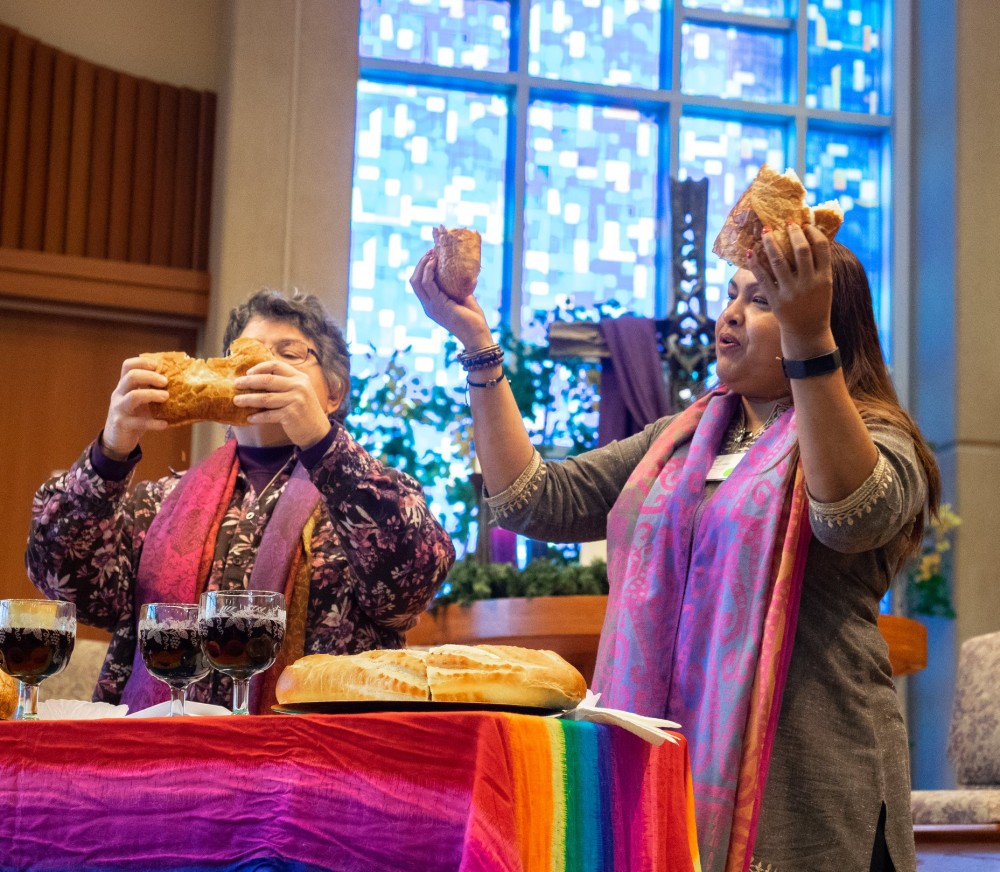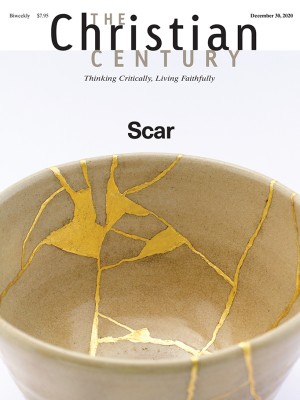Progressive group launches new Methodist denomination

A group of progressive United Methodists and other Christians have launched a new denomination named the Liberation Methodist Connexion, or LMX.
The new church aims to center on the voices of people of color as well as queer and transgender individuals—those the LMX organizers see as marginalized in the United Methodist Church.
“We are a grassroots denomination of former, current, and non-Methodist faith leaders working on the unfolding of the kin-dom of God,” the LMX says on its website. “We intentionally invite the full participation of all who are living out their God-given identities and expressions.”
The LMX is getting off the ground after decades of intensifying debate within the United Methodist Church about how inclusive to be of LGBTQ Christians.
United Methodists expected to take up a proposal to resolve the dispute over same-sex marriage and gay ordination through a formal denominational separation at the General Conference this spring. However, coronavirus-related shutdowns postponed the lawmaking assembly, which is now scheduled for fall 2021.
Read our latest issue or browse back issues.
The new denomination’s organizers, a number of whom are LGBTQ, said they feel called to act now.
“The timeline of the Holy Spirit is driving our decision to launch the LMX at this moment, and we are following her call,” said Althea Spencer-Miller, a New Testament professor at Drew Theological School. She is one of more than 40 collaborators helping to establish the new church.
She and other collaborators declined to say how many congregations or people are part of the new denomination at launch. Organizers said they do not want to equate worth with volume.
Ian Carlos Urriola, another collaborator and a veteran General Conference delegate, said that the new denomination plans to work with the United Methodist Church’s official racial and ethnic caucuses, “ensuring that we remain in relationship with our forebears in the struggle.”
The Wesleyan Covenant Association, a group on the traditionalist end of the theological spectrum, also plans to start a new denomination separate from the United Methodist Church. The WCA’s leadership includes General Conference delegates, and the association already has drafted its own Book of Doctrines and Discipline.
The LMX focuses more on actions than beliefs, Spencer-Miller said.
“We seek not answers that lead us to correct doctrines as to why we suffer. We seek correct actions, correct praxis where God sustains us during the unanswerable questions,” Spencer-Miller said during the online event.
The LMX website notes that such actions include reparations, caring for the earth, and freeing Methodist tradition of colonialism, White supremacy, economic injustice, sexism, ableism, ageism, and heteronormativity.
The new denomination emerges out of the work of UM Forward, which formed ahead of the 2019 special General Conference to advocate for the removal of all United Methodist restrictions against homosexuality. Instead, a majority of General Conference delegates adopted the Traditional Plan, legislation that tightened bans on “self-avowed practicing” gay clergy and instituted mandatory penalties for same-sex weddings.
Since that special session, UM Forward has held gatherings in Minneapolis, Denver, and Dallas to discuss the church’s future. The group also submitted its own separation plan to the coming General Conference that would dissolve the United Methodist Church and form four new denominations instead.
While the idea of dissolution has gained little traction, a number of United Methodists have endorsed another proposal titled “Protocol of Reconciliation and Grace Through Separation,” negotiated by a professional mediator with a theologically diverse group of United Methodists.
The protocol would allow traditionalist churches—those that oppose same-sex weddings and the ordination of noncelibate gay clergy—to leave with their properties. The new traditionalist group would also get $25 million in United Methodist funds.
The protocol also sets aside $2 million for any other new Methodist denominations that form.
But neither money nor the protocol was an emphasis at the LMX launch event. Instead organizers focused on plans to provide educational resources, offer pastoral care, and address the sins they see plaguing the church.
“Now I am grateful for a new day, an invitation to the Liberation Methodist Connexion to be among a fresh constellation of believers who have the urgency for their vision,” said Sue Laurie, one of the group’s organizers.
“I am grateful to be confronted by people who have come to the gospel from different places.” —United Methodist News Service





